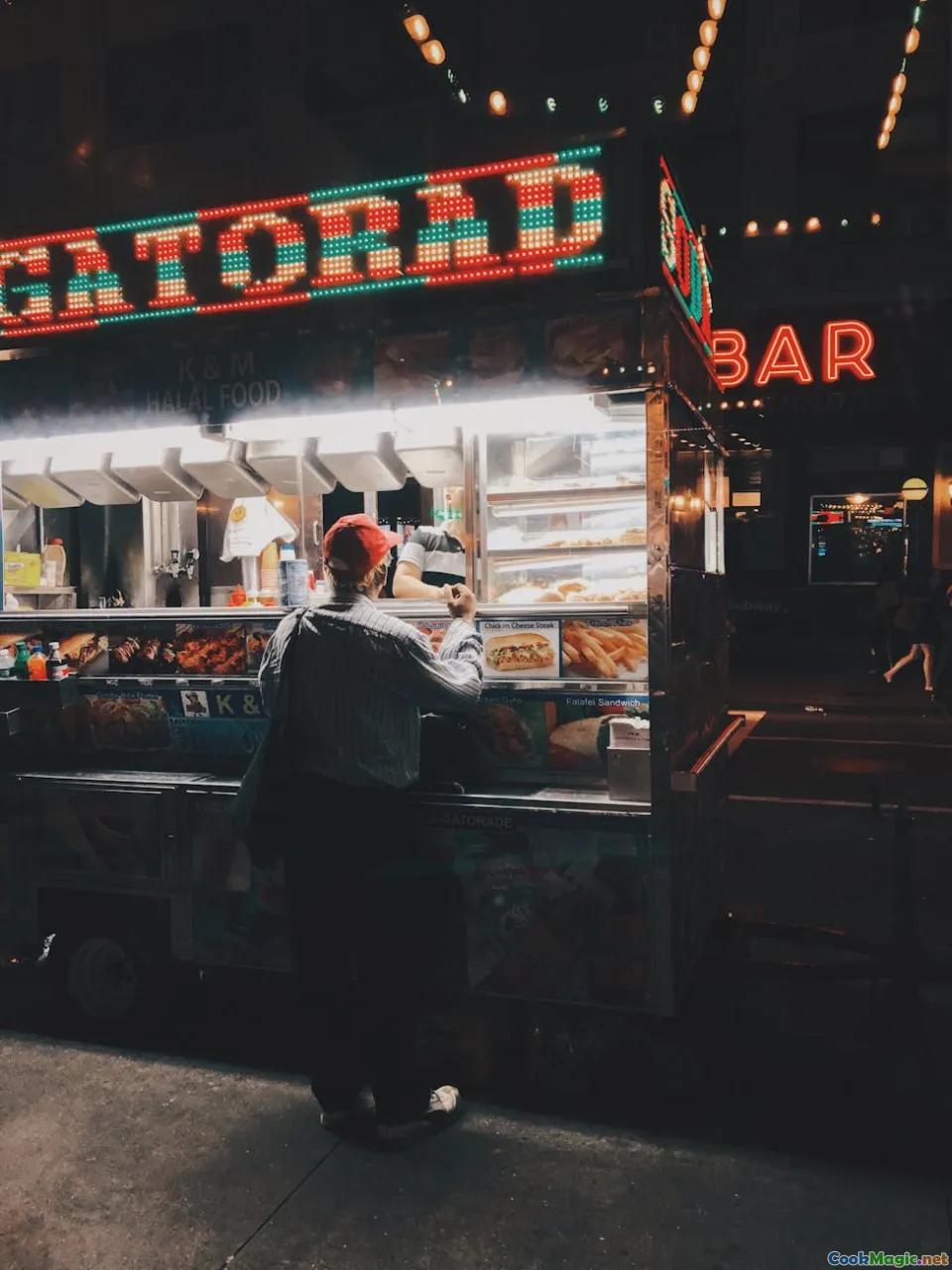How Jewish Delis Shaped New York City Cuisine
8 min read Explore how Jewish delis became a cornerstone of New York City’s vibrant food scene, shaping flavors, traditions, and the city’s cultural identity. June 16, 2025 21:05
How Jewish Delis Shaped New York City Cuisine
Introduction: The Heartbeat of a City in a Deli
Imagine walking down a bustling Manhattan street at dawn. The air is thick with the aroma of freshly baked rye bread, sizzling corned beef, and the faint tang of pickles. This sensory symphony is more than just food—it's a reflection of New York City's soul. Few culinary institutions encapsulate the city's diversity and resilience quite like the Jewish deli.
From the early 20th century to today, Jewish delis have been more than eateries; they are cultural landmarks, social hubs, and symbols of immigrant perseverance. They have not only introduced iconic dishes into the American palate but also woven themselves into the very fabric of New York's identity. Let’s embark on a flavorful journey to understand how these delis have profoundly shaped NYC’s culinary landscape.
The Birth of the Jewish Deli: A Tale of Immigration and Innovation
A New Beginning in a New World
The story begins in the late 19th and early 20th centuries, when waves of Jewish immigrants arrived in New York from Eastern Europe—Poland, Russia, Ukraine—fleeing persecution and economic hardship. These newcomers brought with them culinary traditions rooted in modest, hearty fare that could sustain long hours of labor.
In crowded tenement neighborhoods like the Lower East Side, small storefronts transformed into bustling delis—tiny culinary sanctuaries where tradition met innovation. The Jewish deli was born out of necessity and ingenuity, blending old-world recipes with ingredients available in America, creating a new, uniquely American Jewish cuisine.
The Key Dishes and Their Significance
Among the early staples were corned beef, pastrami, smoked fish, and matzo ball soup. These dishes were more than sustenance; they became symbols of resilience.
- Corned Beef and Pastrami: Brined, seasoned, and smoked, these meats became the cornerstone of deli sandwiches. The process of curing and smoking reflected a preservation technique that allowed families to enjoy flavorful, long-lasting fare.
- Bagels and Lox: A breakfast staple, the chewy bagel topped with silky lox and cream cheese became emblematic of New York’s Jewish culinary influence.
- Knishes and Pickles: These comforting bites added variety and texture, turning the deli into a full sensory experience.
The Golden Age: Deli Culture Flourishes
The Rise of Iconic Establishments
By the mid-20th century, Jewish delis reached the zenith of their influence. Places like Katz's Delicatessen, established in 1888, and 2nd Avenue Delibecame legendary institutions.Katz's Delicatessen, with its red-and-white checkered tablecloths and legendary corned beef, epitomized the NYC deli experience. Its steam-filled counters, where slices of steaming pastrami are piled high, evoke a nostalgic echo of immigrant dreams fulfilled.
The Social and Cultural Hub
Deli counters were more than food—they were communal spaces where stories were exchanged, generations united, and cultural identities celebrated. The deli's vibrant atmosphere reflected NYC's melting pot, where language, laughter, and the aroma of hearty fare mingled.
Culinary Innovation and Adaptation
Chefs and deli owners experimented, blending traditional recipes with local ingredients. For instance, the Reuben sandwich—a marriage of corned beef, Swiss cheese, sauerkraut, and Russian dressing on rye—became an American classic, with roots firmly planted in Jewish culinary tradition.
The Modern Era: Challenges and Resilience
Decline and Revival
By the late 20th century, many traditional delis faced challenges: changing tastes, urban development, and the decline of Jewish neighborhoods. Many beloved establishments closed their doors.
However, a renaissance emerged in the 2000s, driven by chefs, food enthusiasts, and cultural preservationists eager to revive this iconic cuisine. New York’s culinary scene embraced the deli’s nostalgic charm while innovating with modern twists.
Contemporary Innovations
Today’s delis experiment with plant-based options, gluten-free breads, and fusion techniques, all while honoring tradition. Think smoked salmon bagels with artisanal cream cheeses or vegan pastrami sandwiches—deliberate nods to the past that appeal to contemporary palates.
Personal Reflection: The Deli as a Cultural Bridge
Having spent time in NYC and sampling its legendary delis, I can attest to their cultural significance. The first bite of a perfectly crafted pastrami on rye transports you to a different era—one of resilience, hope, and community.
The deli’s bustling counters, the friendly banter with the staff, the warm, crusty bread—these are sensory memories that transcend mere sustenance. They are stories served on a plate, woven into the city’s rich tapestry.
The Enduring Legacy of Jewish Delis in NYC
A Culinary Bridge
Jewish delis are more than eateries; they are living museums of immigrant history, culinary innovation, and cultural resilience. They have influenced countless American dishes, from the iconic Reuben to the ubiquitous New York bagel.
Preserving the Tradition
As the city evolves, so does its culinary landscape. Yet, the essence of the Jewish deli remains—a testament to the enduring spirit of community, adaptation, and flavor. Today’s chefs and food lovers continue to cherish and reinvent these culinary treasures.
Conclusion: More Than Food—A Cultural Heritage
In every slice of pastrami, every bagel, and every pickle, there lies a story of hope, perseverance, and identity. Jewish delis have not only shaped New York City’s cuisine but have also contributed to its cultural narrative. They remind us that food is more than sustenance; it is a vessel of history, memory, and community.
Next time you step into a deli, remember—you’re partaking in a centuries-old story that continues to define the vibrant spirit of New York City. So, savor each bite, and celebrate the enduring legacy of these culinary institutions that have, indeed, shaped the city’s flavor—and its soul.









